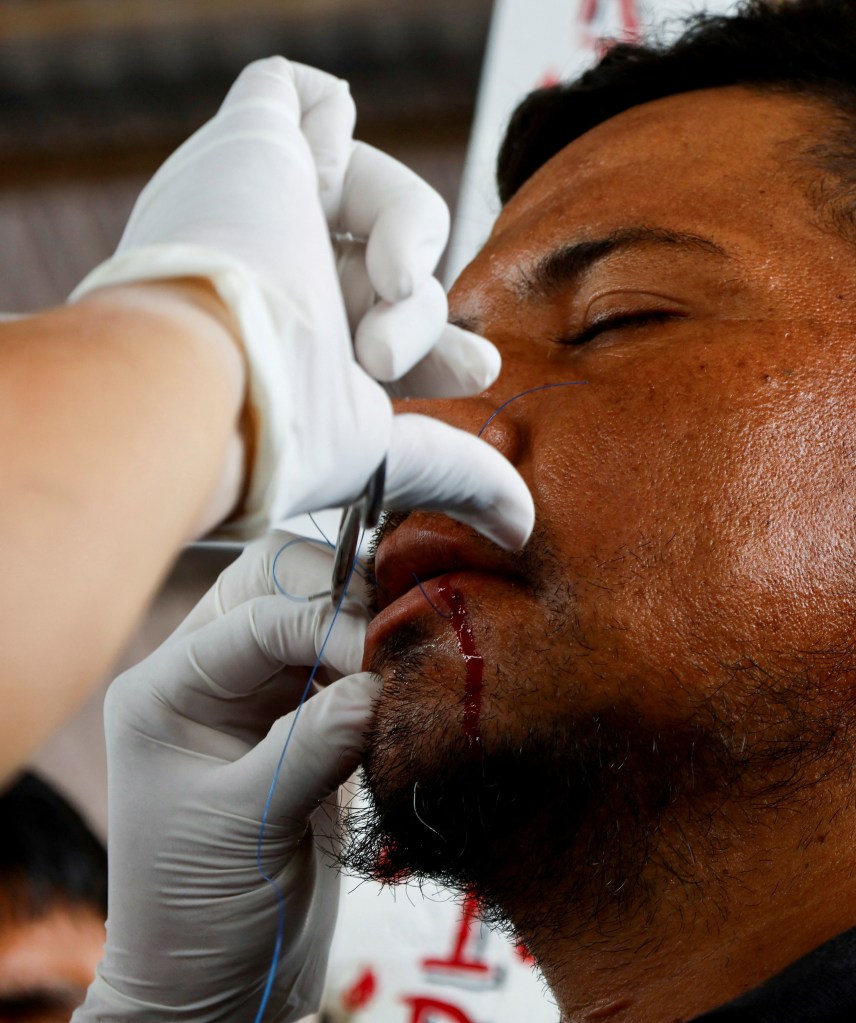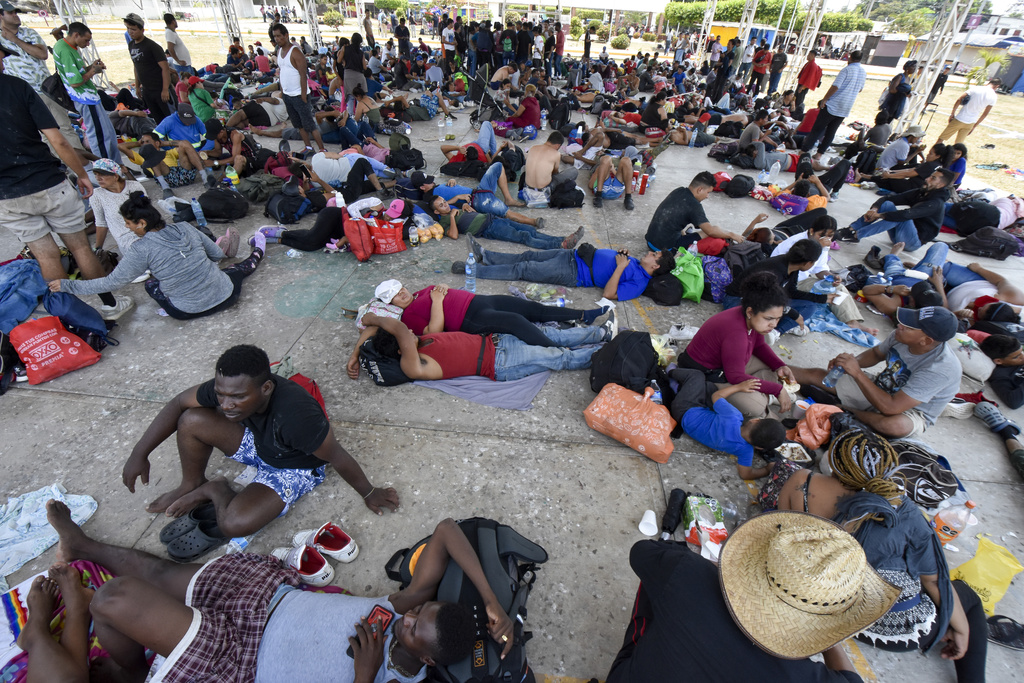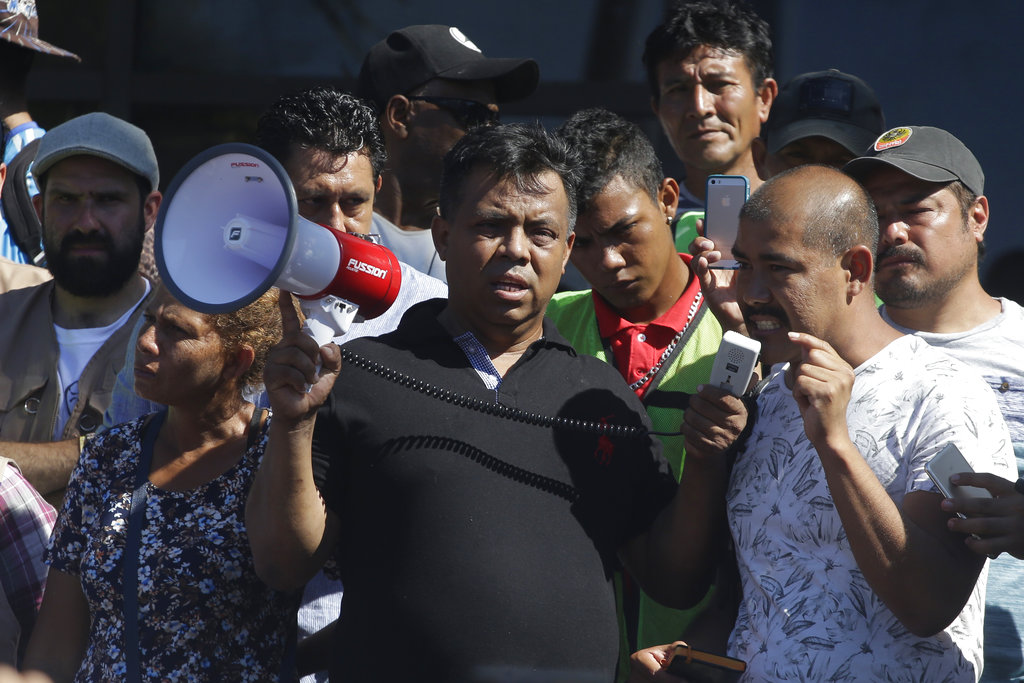Thousands of migrants are currently journeying towards the U.S. southern border, but their progress has slowed. Organizers claim that families and children have become too fatigued and hungry to continue.
As they make this arduous journey, some migrants are resorting to an extreme form of protest to draw attention to their struggles. In protest, they sew their lips shut and burn an effigy of Mexico’s Immigration commissioner, demanding visas needed to continue their march freely towards the U.S. southern border.

Within Mexico’s overwhelmed immigration system, those seeking travel or humanitarian visas often experience waiting periods of weeks or even months. During these extended waits, they are unable to work and provide for their families.

“I think that it is too long that they make us wait three, four months to give us the humanitarian visa, to be able to travel through Mexican territory,” said Selma Alvarez, a Venezuelan migrant. “Because we are at the mercy of traffickers, of criminals, so it seems to me that we all accompany each other when we go in the caravan. It seems safer to me. Although when one is a migrant nothing is safe. It is the only way I think we can get to make the CBP-ONE appointment because while we are here, we are wasting time and the laws keep changing.”

Irineo Mujica, an organizer associated with the group “People Without Borders,” has been a consistent presence with these groups, urging authorities to protect migrants from the dangers of a route controlled by organized crime. He also calls on Mexican authorities to expedite travel visas for asylum-seekers.
Mujica highlights the unsanitary conditions migrants often face, as they frequently end up living on the streets when detention centers become overcrowded while waiting for officials to process their asylum claims.
The migrant group has grown to over 8,000, according to organizers’ estimates, after an additional 1,200 migrants joined the original caravan over the weekend of Nov. 4.
Mujica is advocating for transit visas to provide safer passage towards the U.S. border. The journey from the southern tip of Mexico to El Paso, Texas, spans 1,700 miles, and this migrant caravan aims to complete this trip before the year’s end.
“Unfortunately, I lost my home during the Eta and Iota hurricanes,” said Eliseo Portillo, a migrant from Honduras. “I haven’t been able to recover what I lost to this day. Migration is the only solution we have to recover our losses. We need the Mexican Migration Institute to be aware of this. If you see how many people are walking in the caravan, how many have arrived at Huixtla, some of them have no money to eat.”
Meanwhile, shelters and religious organizations on Mexico’s northern border have issued an alert for the caravan, warning that Juarez does not have the capacity to receive them.
In Texas, Gov. Greg Abbott continues to defend his actions to prevent illegal border crossings. Texas Army and Air National Guard soldiers have been patrolling the southern border as part of Operation Lone Star, using drones for surveillance. They have also placed razor wire along sections where border walls have not been constructed yet.
Abbott praised Operation Lone Star for its efforts in providing border security, citing more than 480,000 apprehensions and over 63,000 migrants bussed out of Texas to sanctuary cities since its inception.
After hosting the Americas Partnership for Economic Prosperity Summit last week, senior White House officials say President Biden sees economic investments in migrant and refugee host nations as crucial for stabilizing migration patterns.










